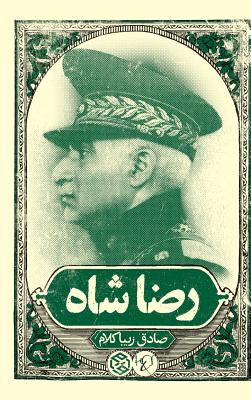Reza Shah

Reza Shah
There are broadly two leading schools of thoughts on Reza Shah in Iran. The first belongs to the period before the Islamic Revolution in 1979, while the second has compiled since the revolution. The first which was propagated mainly by the state and contained in all the books and works of literature which were published during the Pahlavi era, portrayed Reza Shah as a patriotic soldier and a nationalist hero which rescued Iran from the ruin and the destruction which had mainly been brought by the ignorant, selfish and corrupt Qajar rulers. Reza Shah emerged as a hero, rescued Iran from the verge of disintegration and laid the foundation of a modern country. He single-handedly led Iran from instability and backwardness into modernity and progress.
The second interpretation in sharp contrast to the first one regards Reza Shah Rise to power as a British colonialist scenario. Since in the twentieth-century holding colonies had become unmanageable and unpopular, Britain decided to rule Iran indirectly through a dependent ruler named Reza Shah. The British helped Reza Khan a senior officer to rise to power and subsequently overthrew the Qajar Dynasty and established the Pahlavi rule with the now Reza Shah as his first monarch. The post -Islamic historical publications, TV serials, films, conferences and the entire educational system from primary schools to universities are merely the descriptions of Reza Shah's works and decisions which were against the Iranian national interests while benefiting the Western colonial powers notably the British.
This book in sharp contrast to both interpretations, particularly the enormous post-revolution literatures against Reza Shah argues that the rise of Reza Shah was, by and large, the product of Iran's internal social, political and economic conditions on the one hand, and Reza Shah's strong will and tremendous efforts which he spent to rise to power. His massive modernization program too was the desires of many educated Iranians and didn't relate to what the British might have desired. Finally, the book also examines some of his shortcomings.
PRP: 343.58 Lei
Acesta este Prețul Recomandat de Producător. Prețul de vânzare al produsului este afișat mai jos.
274.86Lei
274.86Lei
343.58 LeiLivrare in 2-4 saptamani
Descrierea produsului
There are broadly two leading schools of thoughts on Reza Shah in Iran. The first belongs to the period before the Islamic Revolution in 1979, while the second has compiled since the revolution. The first which was propagated mainly by the state and contained in all the books and works of literature which were published during the Pahlavi era, portrayed Reza Shah as a patriotic soldier and a nationalist hero which rescued Iran from the ruin and the destruction which had mainly been brought by the ignorant, selfish and corrupt Qajar rulers. Reza Shah emerged as a hero, rescued Iran from the verge of disintegration and laid the foundation of a modern country. He single-handedly led Iran from instability and backwardness into modernity and progress.
The second interpretation in sharp contrast to the first one regards Reza Shah Rise to power as a British colonialist scenario. Since in the twentieth-century holding colonies had become unmanageable and unpopular, Britain decided to rule Iran indirectly through a dependent ruler named Reza Shah. The British helped Reza Khan a senior officer to rise to power and subsequently overthrew the Qajar Dynasty and established the Pahlavi rule with the now Reza Shah as his first monarch. The post -Islamic historical publications, TV serials, films, conferences and the entire educational system from primary schools to universities are merely the descriptions of Reza Shah's works and decisions which were against the Iranian national interests while benefiting the Western colonial powers notably the British.
This book in sharp contrast to both interpretations, particularly the enormous post-revolution literatures against Reza Shah argues that the rise of Reza Shah was, by and large, the product of Iran's internal social, political and economic conditions on the one hand, and Reza Shah's strong will and tremendous efforts which he spent to rise to power. His massive modernization program too was the desires of many educated Iranians and didn't relate to what the British might have desired. Finally, the book also examines some of his shortcomings.
Detaliile produsului










